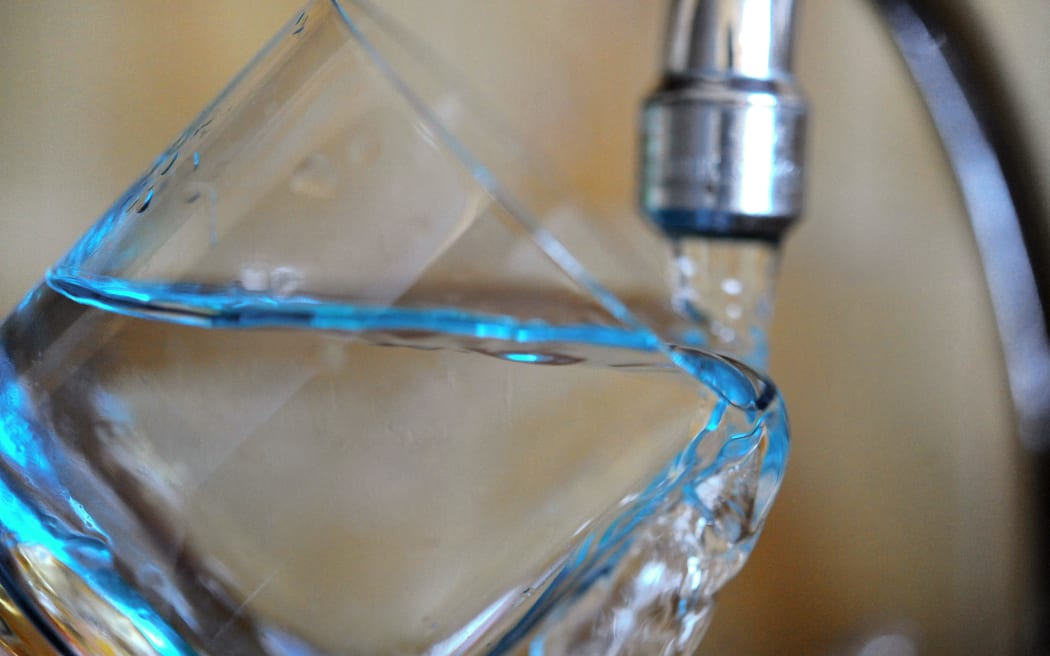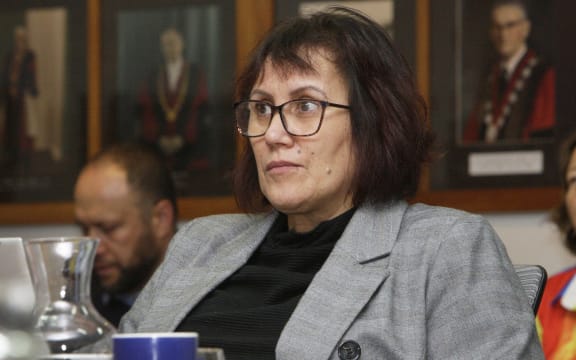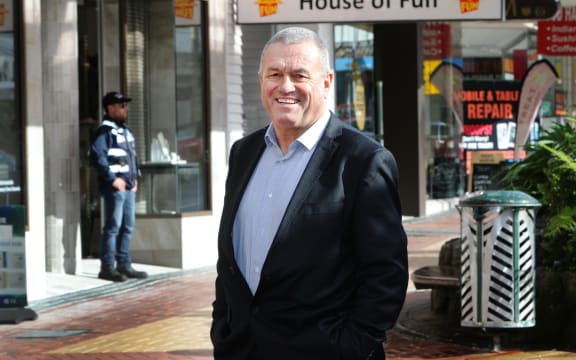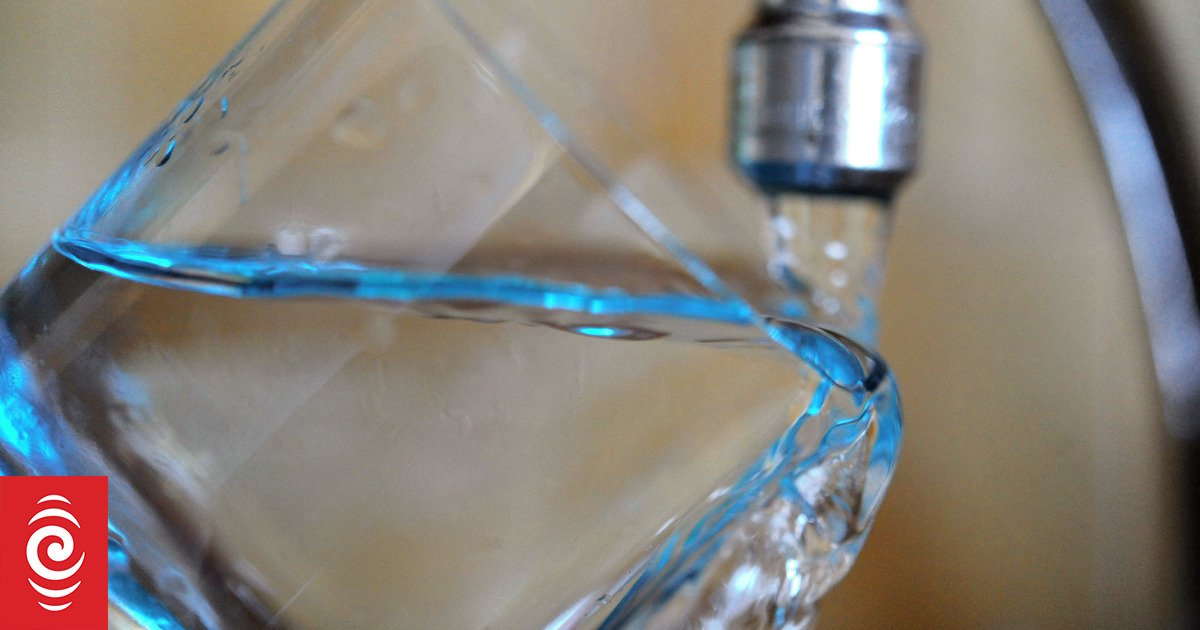
Whangārei District Council is pushing back against the government’s directive to fluoridate the district’s drinking water (file image).
Photo: AFP / FRED TANNEAU
Whangārei District Council is pushing back against the government’s directive to fluoridate the district’s drinking water.
The move comes amid funding concerns, claims of a loss of democracy and a councillor asking about a potential High Court injunction – which the council lawyer quickly dismissed.
A fractious council meeting on 28 September decided on a month-long halt to any decision to progress the roughly $5 million mandated fluoridation of its drinking water.

In July 2022, the then director-general of health Sir Ashley Bloomfield directed WDC, among 14 councils, to fluoridate water under the government’s Health (Fluoridation of Drinking Water) Amendment Act 2021.
The WDC pause came as two councillors called for a community referendum before proceeding. One councillor raised the prospect of a High Court injunction and claimed the government had the council by “the short and curlies” over mandating fluoride.
Councillor Deb Harding said the pause was necessary to make sure councillors were fully educated on the fluoridation kaupapa, and so councillors could make an informed decision.

Councillor Deb Harding.
Photo: Local Democracy Reporting
Bloomfield’s directive requires the addition of flouride to Whangārei and Bream Bay drinking water, supplied to about 60,000 people, before the end of 2024.
Fluoridating will cost $4.6m, excluding GST, for this drinking water. On top of that, it will cost up to $1m to fluoridate the council’s Poroti drinking water during this plant’s upgrade.
Flouridation will also cost WDC $100,000 a year to run.
Councillor Marie Olsen said the government effectively had the council by “the short and curlies” over the flouridation’s mandating aspect, resulting in a loss of democracy.
The Whangārei community should first be consulted on the decision, she said.
The director-general of health has the power to direct councils to fluoridate. WDC must comply and does not need to carry out public consultation.
An $11.3m government fund for mandated councils’ fluoridation introduction building costs was set up at the time of the mandate.
WDC initially applied for $3.75m from this fund. It has subsequently gone back to the ministry with the revised $4,658,857 figure – which amounts to more than 40 percent of the fund.
Councillors at the meeting were concerned the council would be left to carry the costs if the government did not come through with the money. It does not include the $1m cost of fluoridating the Poroti drinking water infrastructure.
WDC chief executive Simon Weston said the council had not received the written funding confirmation it sought from the ministry.
Council manager water services Andrew Venmore said the ministry gave in-principle support for the construction component of the council’s initial $3,058,857 mandated fluoridation cost estimate, but not guaranteed the full amount.
Local Democracy Reporting Northland asked the director-general of health whether she was planning to write to WDC confirming how much money would be put towards mandated fluoridation, and when this would be.
In response, Ministry of Health/Manatū Hauora deputy director-general Dr Andrew Old said WDC’s detailed flouridation design and proposal received on 7 September was being considered and the organisation was in discussion with the council.
Councillor Gavin Benney said $4.6m was a lot of money to commit to while government funding remained uncertain. A change in government could change the position on fluoride and funding.

Councillor Gavin Benney.
Photo: Northern Advocate / Tania Whyte
He said voting in favour of fluoridation on 28 September could potentially leave WDC having to find $3m, GST exclusive, over and above the $1.6m already budgeted for this in the 2023/2024 financial year.
The move to pause any decision potentially jeopardises WDC being able to meet tight government fluoridation implementation timeframes, for which it can be penalised.
Old said a council that did not comply risked being fined up to $200,000 under the Health Act 1956 – plus $10,000 a day for ongoing non-compliance.
“Manatū Hauora will take a proportionate approach to any non-compliance by local authorities,” Old said.
Venmore said under the government directive, fluoridation for WDC’s Whau Valley water treatment plant must be in place by the middle of next year and by the end of 2024 for Ruakākā, Maunu and Waipū. It was required for the Poroti water supply by June 2026.
Olsen sought information from the WDC lawyer at the meeting on 28 September, on the council taking out a High Court injunction to stop the government fluoridation order.
Lawyer Graeme Mathias poured cold water on this, saying that simply disagreeing with a government directive was not grounds for applying for a High Court injunction.
Benney said WDC needed to develop its stance on fluoridation, as it had done with the government’s Three Waters.
“We owe it to our people to go to a referendum and let the people decide what goes into our water,” Benney said.
Local Democracy Reporting is Public Interest Journalism funded through NZ On Air




